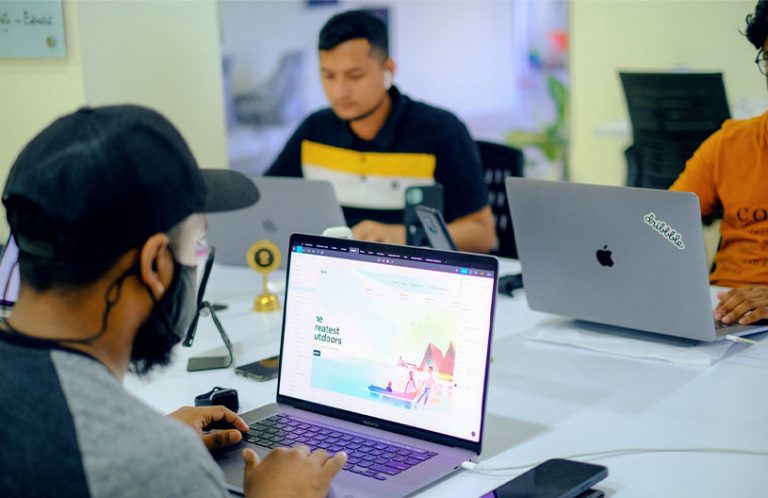The last couple of months have been extremely challenging for the retail industry. Just as retail organizations were navigating supply chain and demand challenges, the pandemic struck. As lockdown orders caused shutters to be pulled down, retailers found themselves battling to adapt to the new order. Although slow, they eventually realized and recognized that the only response to COVID-19 repercussions would be to embrace DevOps and digitally transform themselves to overcome gaps in omnichannel capabilities, business continuity plans, and supply chain responsiveness.
The impact of the pandemic on the retail industry
For eCommerce and Internet companies, today’s business landscape is no less than uncharted. Nation-wide lockdowns, social distancing guidelines, sudden and rapid changes in consumer behavior, and a volatile demand across different product categories have led up to several challenges for them:
- Demand fluctuations: One of the most drastic changes the industry has experienced since the beginning of the pandemic is a constant fluctuation in demand. On the one hand, retail categories like fashion and electronics witnessed a global slump; but on the other, grocery and home improvement retailers often found themselves in out-of-stock situations.
- Declining footfall: When lockdown regulations came into force, retailers were forced to keep their doors shut. But even as restrictions eased, declining footfall continues to haunt retailers. Most consumers, even today, continue to avoid visiting brick-and-mortar stores and find solace in online shops to meet their needs.
- Reduced sales and plummeting revenue: Demand fluctuations and declining footfall have also, invariably, plummeted overall sales. With uncertainty continuing to loom large over the retail industry, companies are now beginning to experience the long-term impact of the pandemic on their very existence. Reduced sales and the air of volatility and ambiguity have also caused retailers to witness their revenue plummeting. While studies found that small business revenues dropped 52% due to the pandemic, early estimates predict that the pandemic would cause major economies to lose at least 2.9% of their GDP over 2020.
- eCommerce growth: Another major shift that the retail industry experienced, as the pandemic dispersed across the world, is the radical rate of eCommerce growth. Lockdown guidelines and contact restrictions caused eCommerce demand to skyrocket, helping retailers mitigate the economic downturn caused by the pandemic.
Why DevOps adoption is on the rise
The pandemic caused retail companies to take several drastic steps in combatting its long-term impact and capitalizing on new revenue opportunities. For instance, bookmyshow.com laid off over 250+ of their employees as the pandemic battered the movie business; at the same time, Flipkart hired more than 23,000 employees across their supply chain to meet the growing demand for eCommerce.
Irrespective of how far-reaching the impact of the pandemic has been, new perspectives on digital transformation have come into play. For all those retailers who lost out to pandemic-induced challenges, several others quickly embraced digitalization via DevOps and ended up invariably doing better than others. Here’s why DevOps adoption is on the rise in the post-pandemic world:
- Bring products into the market faster: If there is one lesson retailers have learned amidst the pandemic, it is the need to bring products into the market faster and keep pace with the demands of today’s unpredictable environment. As the demand for change continues to mount, DevOps helps retailers develop (and test) small batches of code, paving the way for continuous delivery of products, and eliminating the risks brought about by developing code in large, perilous batches.
- Enhance transparency and visibility: As organizations continue to operate via a remote work model, embracing DevOps has enabled them to enhance transparency and visibility across teams and locations. By enabling remote teams to efficiently collaborate with each other in real-time and having them check-in all of their tasks in a single repository, retail organizations are able to complete projects at high speed – while ensuring every employee is accountable for his/her contribution. Such a culture of transparency is also empowering teams to better pinpoint inefficiencies and tweak existing processes at an accelerated rate.
- Enable better peer reviews: In an era where the workforce continues to be distributed, DevOps sets the stage for new avenues of collaboration. By enabling feedback loops to be efficiently, flexibly, and speedily incorporated, DevOps makes it easy for retailers to innovate, thanks to regular, albeit virtual, collaboration with peers. Since every change or feature update is examined by peers, defects can be detected and corrected – early in the lifecycle – while preventing their impact in the live environment.
- Be responsive to changing retail trends: DevOps also offers retail organizations the flexibility and agility required to respond to changing trends in today’s competitive environment. By ensuring close collaboration between different teams, DevOps allows retail organizations to respond to market fluctuations and customer demands quickly and efficiently. Right from introducing chatbot-based customer service to streamlining pickup and delivery options – DevOps is allowing retailers to more easily incorporate pandemic-induced demands into their business models.
- Improve product security via DevSecOps: DevOps also helps retailers improve the security of their products, which is increasingly becoming top of mind for most CIOs. By shifting security further left into the software development lifecycle, DevSecOps allows retailers to enable frictionless security – without impacting quality, cost, or time-to-market. Security, when baked into initial infrastructure definitions, empowers every team member to be responsible for the security of the product under development, ensuring every line of code to be written with security in mind.
The COVID-19 pandemic has accelerated digital transformation at almost every retail organization today. While many are revamping their business models, many others have turned towards ramping up their online presence as the demand for eCommerce rises. Irrespective of what route they choose, adopting DevOps has been a great way for retail CIOs to shorten the development lifecycle, modernize their business, and pave the way for successful, long-term sustenance. With the DevOps market expected to be worth $10.31 billion by 2023, now is the time for CIOs to join the bandwagon to reinvent and reimagine the retail landscape.




